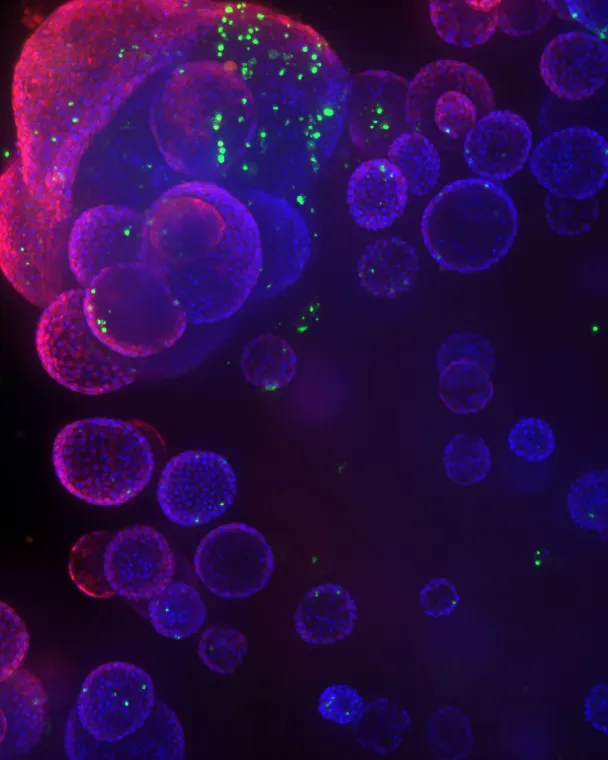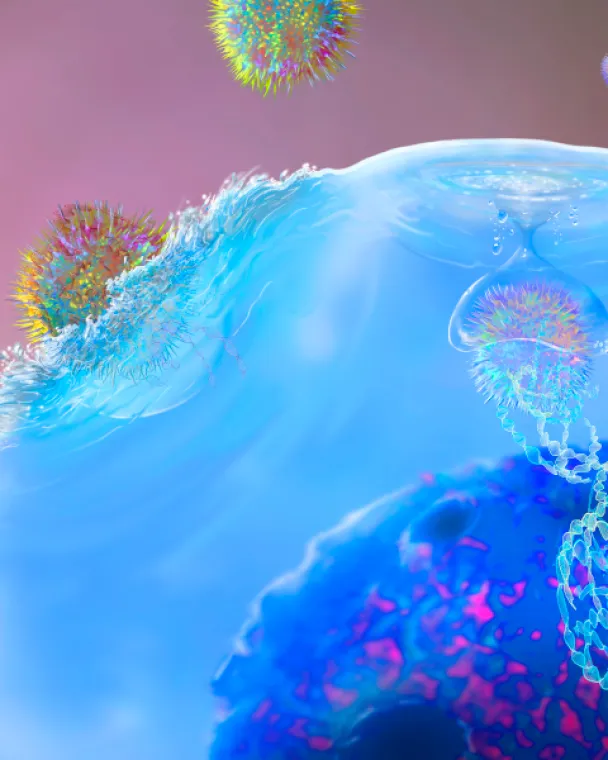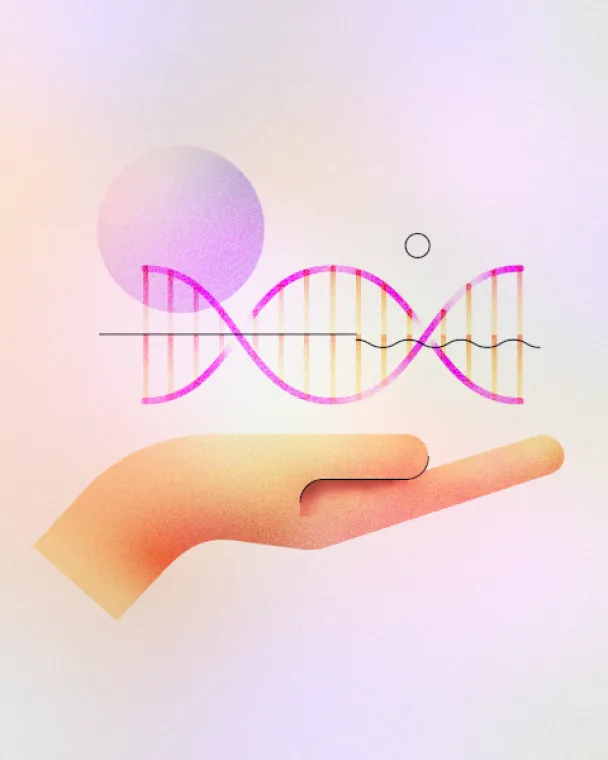Featured Beacon: CRISPR Cures with the Innovative Genomics Institute

Next-Gen Toxicity Testing
This collaboration aims to improve patient safety and accelerate the development of new therapies by addressing a leading cause of failure in clinical trials. The goal is to develop more streamlined, scalable, and genetically diverse liver organoid technology as a drug toxicity screening solution, so that the biopharma industry is better-positioned be able to deliver better, safer drugs to patients faster.
CRISPR cures
This collaborative center aims to develop gene-editing cures for rare and other diseases on an unprecedented scale. Its approach uses the programmable power of CRISPR, with the goal of permanently addressing hundreds of diseases with a single research, development and regulatory approach – one that could create a new model for future development of a wide range of genomic medicines.


Sepsis subtyping innovation
This partnership is developing a new test to enable precision medicine care for sepsis, a pathological immune response to infection that accounts for one in five deaths globally each year. The test will leverage rapid molecular diagnostic technologies to pinpoint different subtypes of sepsis and allow the development of novel personalized care paths, including which targeted therapies are most likely to help.
Cell therapy manufacturing
This multi-year collaboration aims to develop new technologies that will improve the consistency of clinical outcomes for patients and overcome manufacturing bottlenecks in the delivery of next generation engineered cell products. Its focus will be on product solutions that address challenges in both yield and quality of cell therapies.


Gene therapy innovation
This Beacon focuses on innovation at the intersection of biology and manufacturing, with the long-term goal of fully realizing the promise of gene therapy. It aims to deliver product solutions that address bottlenecks impacting viral vector manufacturing yield and quality.



